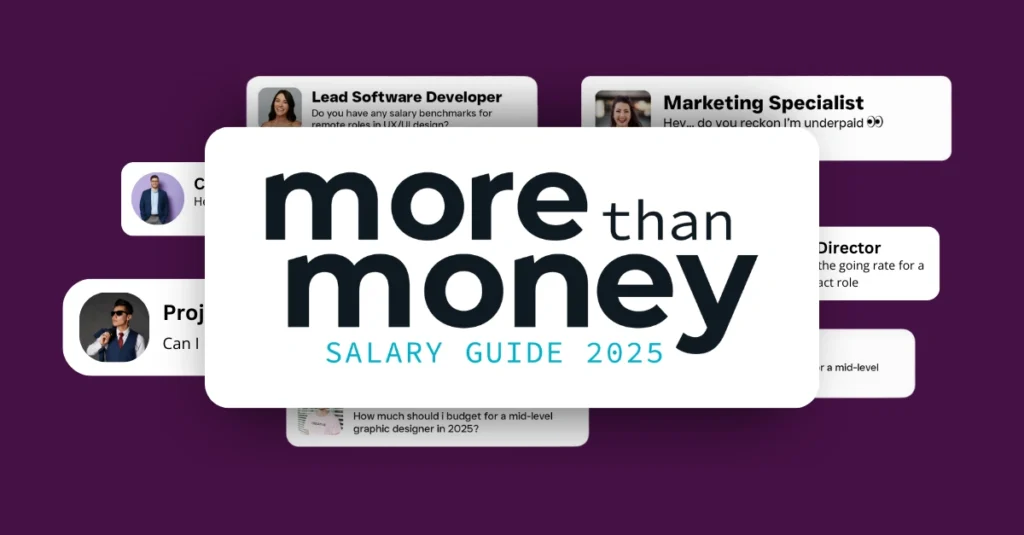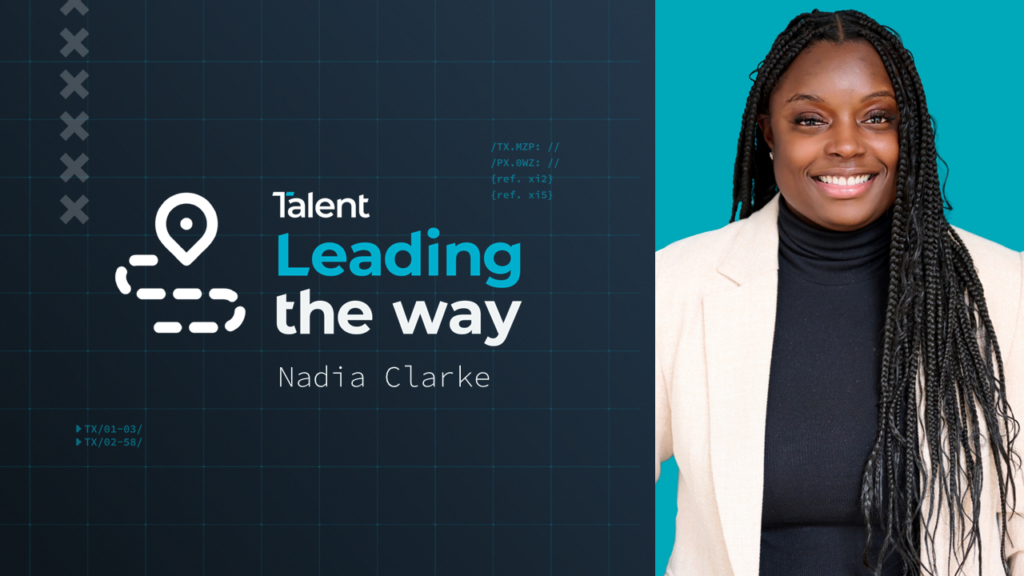
Is short tenure on a resume really a red flag? We asked our recruitment experts
Is short tenure on a resume really a red flag? We asked our recruitment experts

The pandemic didn’t just change where we work, it shifted how we think about work altogether. Dining tables and spare bedrooms became our offices, Gen Z entered the workforce with fresh expectations, and a booming tech market sent salaries soaring. With remote work removing geographic barriers, job-hopping became more common and, in some circles, more accepted. But as employees embraced flexibility and opportunity, employers started to question the growing trend of short tenures. For some, it’s a sign of agility and ambition. For others, it’s a red flag.
To unpack both sides of the debate, we sat down with some of our recruitment experts to hear their take: Is short tenure a problem or simply the new normal?
Short tenure isn’t a bad thing
Georgia Townsend, a Candidate Manager at Talent who has worked with tech and digital candidates, argues that short tenure isn’t necessarily a red flag especially in today’s evolving workforce. She sees career movement as a strategic way for candidates, particularly younger generations, to accelerate growth.
“There are real advantages to moving roles more frequently,” Georgia says. “For candidates, short tenure can mean faster career progression, better pay, and broader exposure across industries and tech stacks.” She explains that staying too long in one company can sometimes slow down advancement, especially in fields like data and AI where hands-on experience with emerging tools is critical and often only gained through diverse, fast-paced environments.
Georgia also points out that the rise of remote and hybrid work has reshaped how people engage with companies. “Gen Z, for instance, entered the workforce just before or during COVID. Many haven’t had the chance to build strong in-person connections or feel a strong sense of loyalty to one employer,” she explains. “If companies haven’t nailed the ‘stickiness’ of culture in remote settings, you can’t blame young talent for moving on.” According to Yahoo Finance, Gen Z workers typically stay in a job for approximately 2 years and 3 months which is shorter than Millennials and significantly less than Gen X and Baby Boomers.
She believes employers need to consider the context. “Short stints shouldn’t be immediately disqualifying. Was it a toxic environment? A mismatch of values? A candidate with a few short roles but strong reasons and good reflection can still bring a lot of value.”
Georgia also highlights that short tenure can offer breadth of experience that longer stints might not. “Someone who’s worked in multiple environments might not have depth in one area, but they’ll have seen different ways of working and bring a broader toolkit to the table.”
Long tenure is best
Dylan Cohen, Director – Microsoft & Cloud Solutions, at Talent New York, who has been in the recruitment industry for nearly a decade, takes a more traditional stance, especially from the perspective of clients making long-term hiring decisions. As a recruiter who often works with consulting firms and high-stakes placements, he believes short tenure can – and often should – raise red flags.
“When I see four jobs in six years, I pause,” Dylan says. “Clients pay us a premium to find stable, long-term hires. They’re not going to shell out thousands in fees for someone who looks likely to leave in 12 months.”
He acknowledges that in early careers, especially post-COVID, some movement is expected. But past a certain point, he argues, repeated short stints can indicate a lack of depth. “A candidate may have breadth, but if they’ve never stayed long enough to see a project through or take on leadership responsibilities, it’s hard to judge their impact.”
Dylan also points out the salary inflation that short tenure can drive. “Candidates who hop around often demand more money with each move, but they’re not always bringing the seniority or experience to match. Some clients just won’t pay someone $130K because they had two short gigs – they want to see consistency and growth.”
Ultimately, short tenure should always come with an explanation. “COVID and economic disruptions are valid reasons. But if it’s a consistent pattern without context, it’s risky – for us as recruiters, and for our clients.”
Does location matter?
Dylan argues that whether short tenure is a red flag depends significantly on regional and industry contexts. He explains that in areas with more job opportunities, such as New York, short tenure may not be as concerning because of the fast-paced, high-risk, high-reward environment. “In places like New York, if someone has moved between companies every two to three years, it’s not that uncommon because the volume of opportunity is so high,” Dylan notes.
He believes the industry also plays a crucial role. For example, in sectors like sales, moving every 12 to 18 months is a red flag, but in software engineering, where projects may last several years, shorter stints may be more acceptable. Dylan also points out that the ability to explain why someone left a job can make a significant difference. “If someone can explain that they left because they outgrew the role or the company wasn’t able to provide new challenges, it helps.”
Georgia emphasizes that geographic location can influence how short tenure is viewed. For instance, in other markets, three years may seem like a relatively short tenure because of the slower pace of local industries. However, in cities with more dynamic job markets, such as New York or London, shorter tenures may be more acceptable. “In places like New York, three years in a role might be the norm before a person moves on for better opportunities,” Georgia explains. “In other markets, though, it could be more of a six-year game.”
She suggests that employers in regions with fewer job opportunities may be more inclined to view candidates with shorter tenures as flight risks, whereas in global hubs with constant industry shifts, the perspective on tenure might be different. Additionally, she highlights that even within a region, industries like mining, where growth is slower but more structured, may not align with candidates who are used to more fast-paced work environments.
Dylan’s final thoughts:
“I think the key takeaway here is that the answer depends on the industry and region. In my market, for example, I’d love a candidate with three jobs over 10 years who can speak specifically about migration projects. However, in other markets, that might not work. Long tenure typically signals loyalty, commitment, and the ability to see a project through, but it doesn’t always equate to experience across different job functions. Someone with long tenure in an end-user role might not be suitable for consulting clients because they’ve only seen one way of doing things. So, longer tenure is often better, but not always. It’s important to remember that more tenure doesn’t necessarily mean more diverse experience.”
Georgia’s final thoughts:
“The real debate comes down to what clients want out of a role. For example, in a complete transformation, you wouldn’t hire someone who’s been at one company for seven years, because they’ve only seen things done one way. That’s where someone with three jobs in six years might be favored. I agree that less than 12 months in a role is a red flag, and having multiple stints under 12 months is also concerning. But in rapidly changing industries like data, AI, or coding, the shorter learning curves and evolving technology challenge traditional thinking about tenure.”








